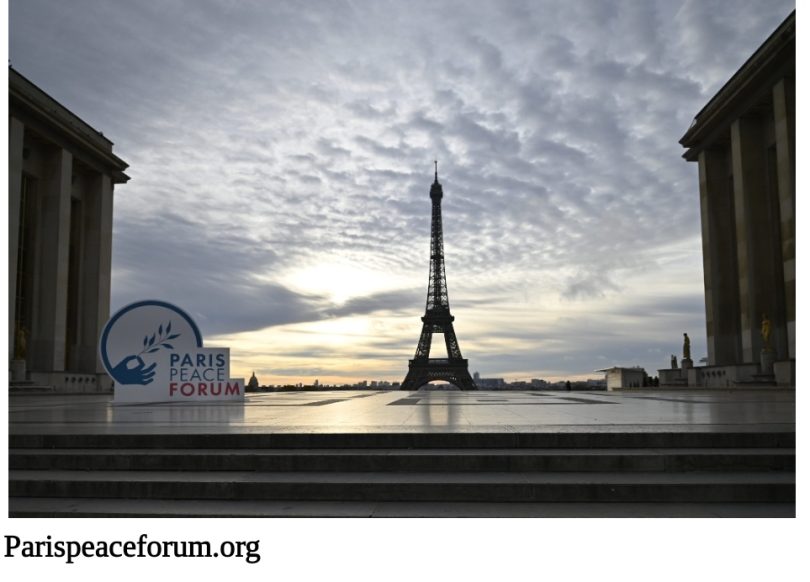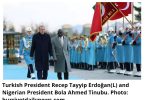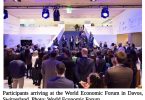Amid a global landscape defined by proliferating conflicts, accelerating climate events, and the disruptive speed of artificial intelligence, the 8th Paris Peace Forum convened at the historic Palais de Chaillot on October 29-30, 2025.
With international cooperation under severe strain, the Forum sought to move beyond analysis and “take action,” in the words of its founder, Justin Vaïsse, by gathering stakeholders to address systemic challenges.
The event, themed “New Coalitions for Peace, People and the Planet,” brought together over 4,000 participants, including more than 15 heads of state and government, 25 ministers, and 500 speakers from civil society, academia, and the private sector. The two days of high-level debate and negotiation, spanning 86 sessions, yielded concrete financial pledges, new political declarations, and a strengthened commitment to multilateral solutions in a fractured world.
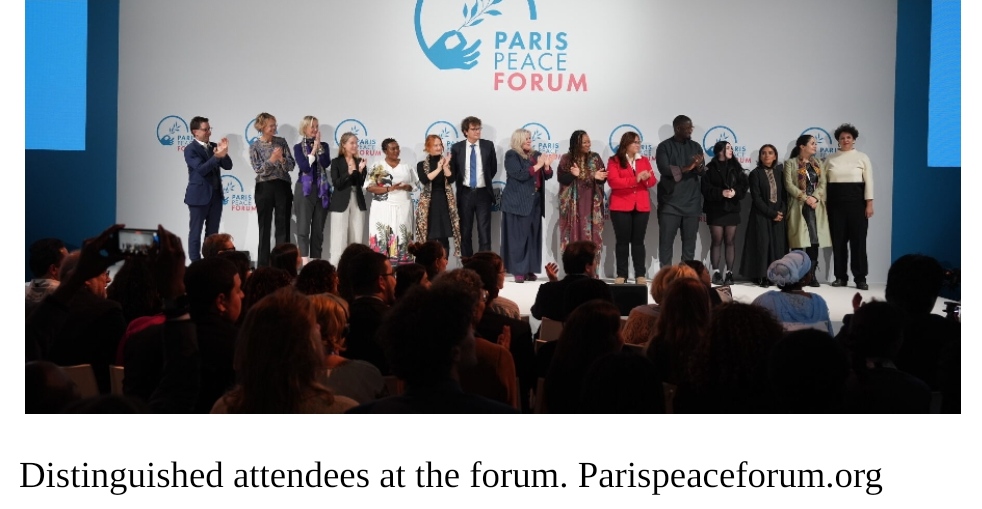
Reforming Global Governance: The ‘Bridgetown to Accra’ Vision
A central theme of the Forum was the urgent need to reform the global financial and political architecture to reflect contemporary realities. This was most clearly articulated in a high-level discussion titled, “From Bridgetown to Accra: The Visions Driving the Future of International Cooperation.”
The session featured prominent leaders from the Global South, including President John Dramani Mahama of Ghana, Prime Minister Mia Amor Mottley of Barbados, and Celso Amorim, Chief Advisor to the President of Brazil.
President Mahama, calling for a “fairer and more inclusive global order,” argued that the existing multilateral system possesses “deficits in addressing the complex challenges of the modern era.” He positioned his “Accra Reset” initiative alongside Prime Minister Mottley’s “Bridgetown Initiative,” explaining that their alignment represents a united front for reforming international financial institutions.
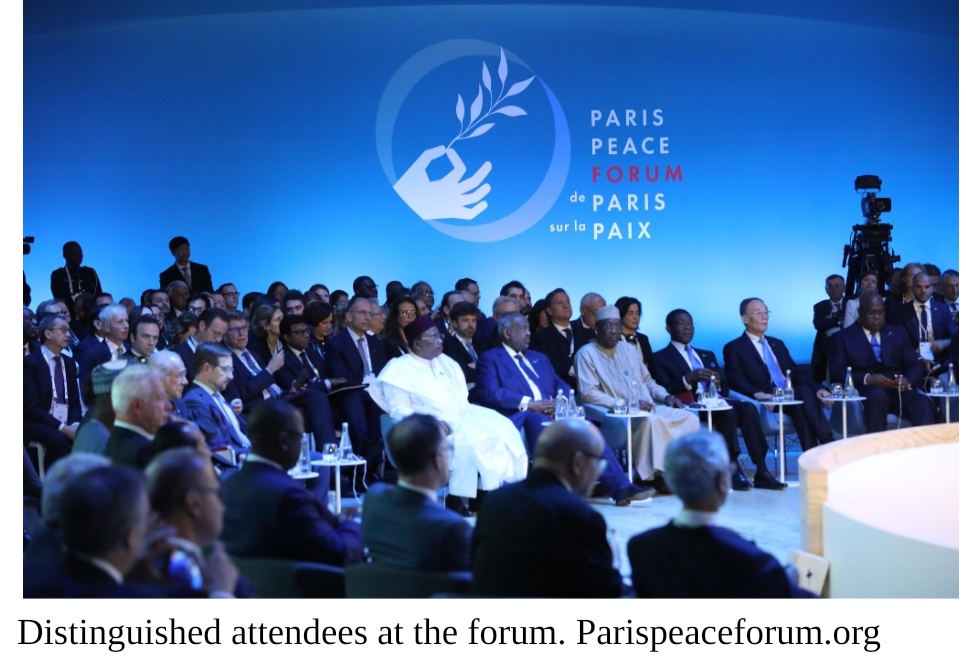
The core of this vision, President Mahama explained, is to evolve the relationship between the Global North and South into one of “mutual respect and equal partnership.” This new compact is essential for addressing shared challenges, including debt sustainability, equitable access to capital, and the global impacts of climate change. The strong presence of other African leaders, including President Faure Gnassingbé of Togo, Joseph Boakai of Liberia, and Felix Tshisekedi of the DRC, boldly displayed the continent’s unified push for a more significant role in global governance.
New Coalitions for Peace.
With more active conflicts than at any time since World War II, the Forum’s “Peace” pillar focused on diplomacy, conflict resolution, and the preservation of international law.
A major development was the formal announcement by Michelle Bachelet, former Chilean President and UN High Commissioner for Human Rights, of her candidacy for the next Secretary-General of the United Nations, a move that framed the Forum’s discussions on enhancing and adapting the UN’s mission.
The intractable Israeli-Palestinian conflict received significant attention. In a session on the Two-State solution, former Israeli Prime Minister Ehud Olmert stated the necessity of a Palestinian-run government to control Gaza, noting, “Gaza is part of Palestine, not Israel.” This was echoed by former Palestinian Foreign Minister Nasser Al-Qidwa, who agreed that “there is no alternative to the two-state solution” and asserted that “any Palestinian land will be governed by Palestinians only.”
The Forum also held a ministerial conference to support peace in the Great Lakes region, co-chaired by France and Togo. The conference aimed to mobilize the international community to respond to the humanitarian emergency in eastern DRC and support ongoing mediation processes. A minute of silence was also observed in solidarity with the people of Sudan.
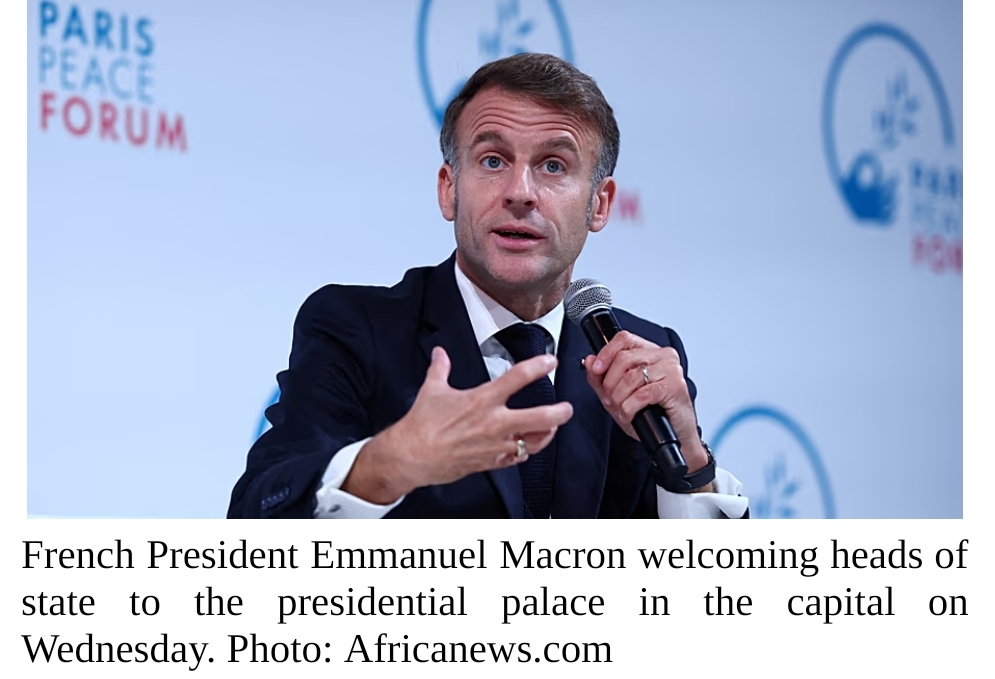
On the 75th anniversary of the Geneva Conventions, a high-level panel including ICRC President Mirjana Spoljaric-Egger and Spanish Foreign Minister José Manuel Albares reiterated the call to safeguard international humanitarian law (IHL). “The first steps towards peace are always humanitarian,” Ms Spoljaric-Egger reminded the audience, insisting, “We must treat human life as human life, regardless of which side you are on.”
New Coalitions for People: Information and AI
The “People” pillar tackled the dual challenges of technological governance and information integrity. The Forum hosted the high-level political segment of the International Conference on Information Integrity and Independent Media (IFPIM-FID).
This resulted in a major collective political declaration adopted by 29 states, committing to enhanced multilateral action and increased resources to promote reliable information and counterpropaganda. French President Emmanuel Macron announced that France would renew its support for IFPIM with a new contribution of €10 million. Ghana was also highlighted as the first African country to provide financial support to the initiative, underpinning the global nature of the coalition.
The governance of artificial intelligence was another dominant topic. Former New Zealand Prime Minister Jacinda Ardern, Chair of the Christchurch Call, framed the debate by warning that while “AI is a preventive tool,” it can also “exacerbate the pathways to radicalization.”
Sessions featuring experts such as Professor Yoshua Bengio and executives from Microsoft and OpenAI explored mechanisms for cooperation to establish best practices and enhance AI safety. A specific roundtable, including UNICEF and the Sesame Workshop, focused on the critical need to protect children’s cognitive and socio-emotional development in an age of emotionally responsive AI.
New Coalitions for the Planet.
Marking the 10th anniversary of the Paris Agreement and serving as a key milestone on the road to COP30 in Belém, the “Planet” pillar focused on accelerating climate action.
A broad consensus emerged from discussions featuring six former and current COP Presidents, President Macron, and Prime Minister Mottley. This coalition of leaders from the Global North and South strongly backed concrete steps to reduce methane emissions from the energy sector and accelerate the phase-out of coal. Ambassador André Aranha Corrêa do Lago, the incoming COP30 President, announced that a report on achieving the $1.3 trillion per year climate finance goal would be presented in early November.
Discussions also touched on the responsible use of minerals critical for the green transition, emphasizing that security-driven approaches must not compromise the international cooperation needed to meet climate objectives.
Conclusion
As the Forum closed, its founder Justin Vaïsse reiterated its core mission. “The word that embodies the Forum is impact,” he stated. “When we look at a brutalized and chaotic world, it is not simply to analyze it: it is to take action, to bring together stakeholders with a view to transforming it.”
To that end, the 8th edition concluded not just with declarations, but with the announcement of the 10 “Scale-Up” (SCUP) projects that the Forum will support throughout 2026. These diverse, on-the-ground initiatives, ranging from the MIT Climate Pathways Project and Disinformation Radar for the Balkans to Zuzi AI: Inclusive & Safer Digital Spaces and Agroforestry et Reforestation Communautaire, represent the Forum’s commitment to translating high-level dialogue into tangible, real-world change.


